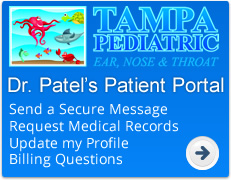|
|
 |
|||||||
LymphadenitisLymphadenitis is an infection of the lymph nodes (also called lymph glands). It is a common complication of certain bacterial infections. CausesThe lymph system is a network of organs, lymph nodes, lymph ducts, and lymph vessels (or channels) that produce and move a fluid The lymph glands, or nodes, are small structures that filter the lymph fluid. There are many white blood cells in the lymph nodes to help fight infection. Lymphadenitis occurs when the glands become enlarged by inflammation, usually in response to bacteria, viruses, or fungi. The swollen glands are usually found near the site of an underlying infection, tumor, or inflammation. Lymphadenitis may occur after skin infections or other bacterial infections, particularly those due to streptococcus or staphylococcus. Sometimes it is caused by rare infections such as tuberculosis or cat scratch disease (Bartonella). Symptoms
Lymph nodes may feel rubbery if an abscess has formed. Exams and TestsThe health care provider will perform a physical exam, which includes feeling your lymph nodes and looking for signs of injury or infection around any swollen lymph nodes. A biopsy and culture of the affected area or node may reveal the cause of the inflammation. Blood cultures may reveal spread of infection to the bloodstream. TreatmentLymphadenitis may spread within hours. Treatment should begin promptly. Treatment may include:
Surgery may be needed to drain any abscess. Outlook (Prognosis)Prompt treatment with antibiotics usually results in complete recovery, though it may take weeks, or even months, for swelling to disappear. The amount of time until recovery occurs will vary depending on the underlying cause. When to Contact a Medical ProfessionalCall your health care provider or go to the emergency room if you have symptoms of lymphadenitis. PreventionGood general health and hygiene are helpful in the prevention of any infection. >> Back to Head & Neck Conditions
|
| © Tampa Ear, Nose & Throat Associates | Otolaryngology | 3000 Medical Park Drive, Suite 200, Tampa, FL 33613 Privacy Policy | Terms of Use | Notice of Non-Discrimination & Accessibility | Notice of Privacy Practices for PHI Allergies | Facial Rejuvenations | Head & Neck Surgery | Larynx Voice | Nose & Sinus | Office Based Procedures | Pediatric ENT | Snoring & Sleep Apnea Advanced Technology | Cerumen Removal | Septoplasty | Sinusitis | Swimmers Ear | Tinnitus | Tonsils & Adenoids | Vertigo Powered by MedCoData |

 called lymph from tissues to the bloodstream. For more information on this part of the body, see lymph system.
called lymph from tissues to the bloodstream. For more information on this part of the body, see lymph system.